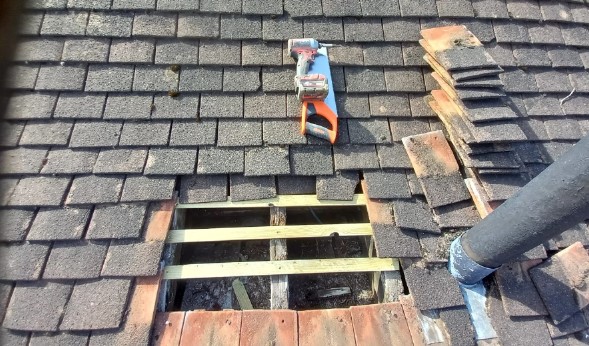The Ultimate Guide to Residential Roofing Services: What Homeowners Need to Know

When it comes to maintaining the safety and aesthetic appeal of your home, the roof is an essential component that often requires attention. Residential roofing services encompass a range of solutions designed to protect your home from the elements while enhancing its overall value. This guide provides homeowners with a comprehensive overview of residential roofing services, including key considerations, types of roofing materials, and the importance of roofing repair.
Understanding Residential Roofing Services
Residential roofing services include a variety of tasks aimed at ensuring your roof remains in optimal condition. These services typically involve installation, maintenance, repair, and replacement. Whether you’re building a new home, upgrading an existing roof, or addressing specific issues, understanding the scope of these services is crucial for making informed decisions.
- Roof Installation
Roof installation is a significant undertaking that requires careful planning and execution. It involves selecting the appropriate roofing material, ensuring proper structural support, and adhering to local building codes. Common roofing materials include asphalt shingles, metal roofing, clay tiles, and slate. Each material offers distinct benefits in terms of durability, aesthetics, and cost.
- Roof Maintenance
Regular roof maintenance is essential for prolonging the lifespan of your roofing system. Maintenance tasks may include cleaning gutters, inspecting for damage, and addressing minor issues before they escalate. Scheduling routine inspections with a professional roofing contractor can help identify potential problems early and prevent costly repairs.
- Roof Replacement
When a roof has reached the end of its lifespan or sustained significant damage, replacement may be necessary. Roof replacement involves removing the old roofing material, assessing the underlying structure, and installing new roofing. Choosing the right materials and contractor is vital to ensure the longevity and performance of the new roof.
Roofing Repair: Essential Considerations
Roofing repair is a critical aspect of residential roofing services. It addresses specific issues that can compromise the integrity of your roof. Understanding common roofing problems and the repair process can help you make informed decisions and maintain a safe, functional roof.
Common Roofing Issues
Several issues can necessitate roofing repair, including:
- Leaks: Leaks can occur due to damaged shingles, compromised flashing, or issues with the roof’s underlayment. Identifying the source of the leak and addressing it promptly is crucial to prevent water damage and mold growth.
- Damaged Shingles: Shingles can become cracked, curled, or missing over time due to weather exposure. Replacing damaged shingles helps maintain the roof’s protective barrier and prevents further damage.
- Flashing Problems: Flashing, which seals joints and transitions on the roof, can deteriorate or become dislodged. Proper flashing repair ensures that vulnerable areas remain watertight.
- Gutter Issues: Clogged or damaged gutters can lead to water backup and roof damage. Regular gutter maintenance and repair are essential for proper water drainage and roof protection.
The Repair Process
Roofing repair involves several steps to ensure effective resolution of issues:
- Inspection: A professional roofer will conduct a thorough inspection to assess the extent of the damage and determine the best course of action.
- Diagnosis: Identifying the root cause of the problem is crucial for effective repair. This may involve checking for leaks, examining flashing, and evaluating the condition of shingles and other components.
- Repair: Once the issue is diagnosed, the roofer will perform the necessary repairs. This may include replacing damaged shingles, sealing leaks, or repairing flashing.
- Follow-Up: After the repair is completed, a follow-up inspection ensures that the issue has been resolved and that the roof is functioning properly.
Choosing a Roofing Contractor
Selecting a reputable roofing contractor is essential for ensuring high-quality work and reliable service. When choosing a contractor, consider the following factors:
- Experience: Look for a contractor with extensive experience in residential roofing services. Experienced contractors are better equipped to handle various roofing issues and provide effective solutions.
- Licensing and Insurance: Ensure that the contractor is properly licensed and insured. This protects you from potential liability and ensures that the contractor adheres to industry standards.
- References and Reviews: Check references and read reviews from previous clients to gauge the contractor’s reputation and customer satisfaction.
- Warranty: Inquire about the warranty offered for both materials and labor. A solid warranty provides peace of mind and protection against potential issues.
Conclusion
Residential roofing services are vital for maintaining the safety, functionality, and aesthetic appeal of your home. From installation and maintenance to repair and replacement, understanding the various aspects of roofing services empowers homeowners to make informed decisions and protect their investment. Regular inspections, timely repairs, and choosing the right contractor are key to ensuring the longevity and performance of your roof. By staying proactive and informed, you can ensure that your home remains well-protected for years to come.









